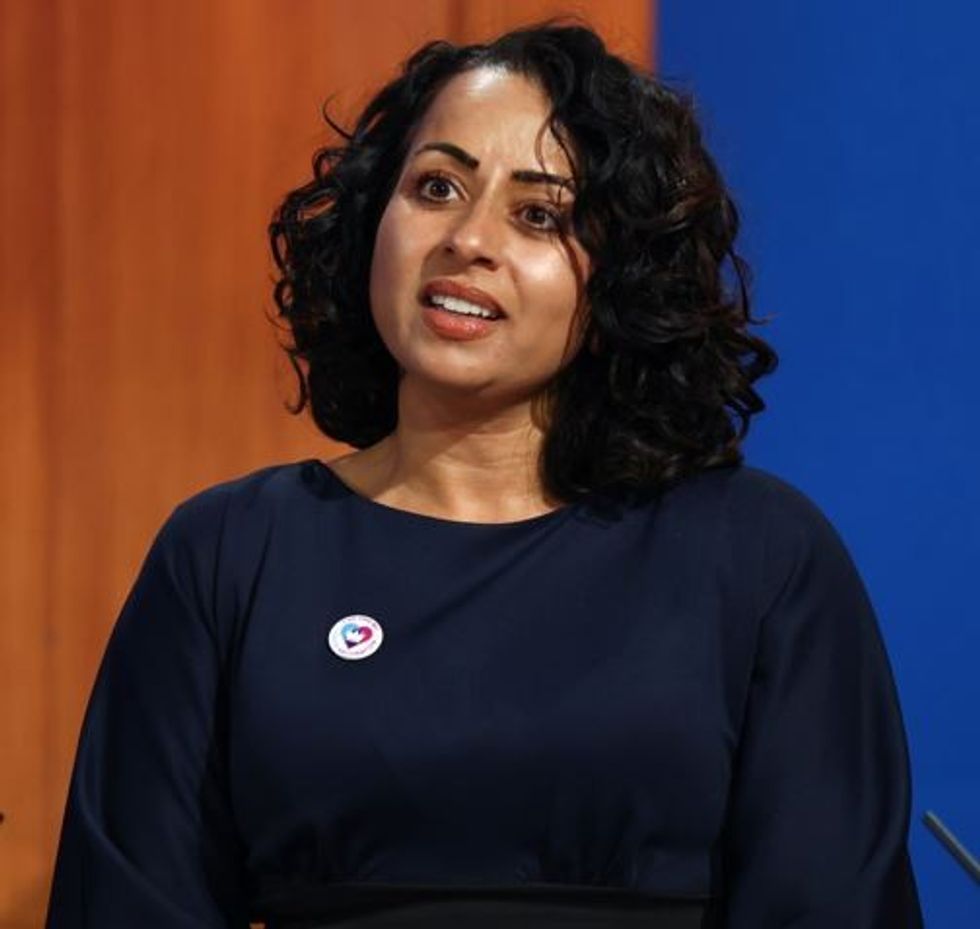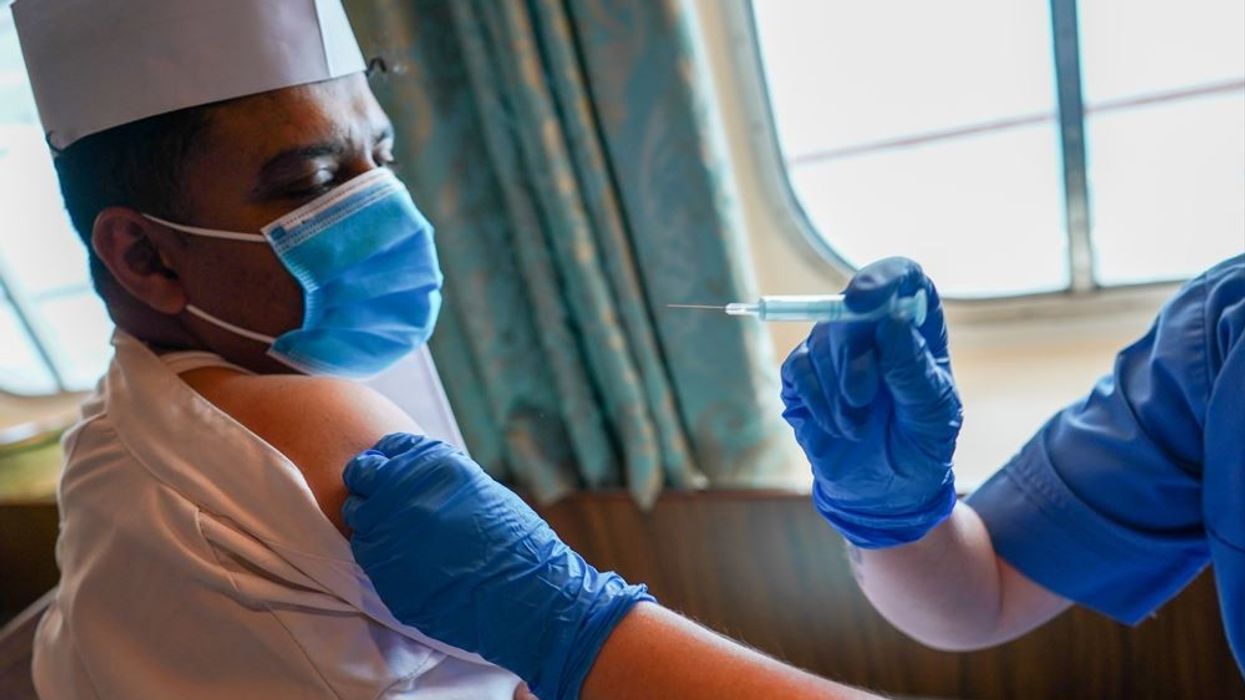AS THE weather cools, people tend to see more of their friends and family indoors, which increases the risk of catching colds, flu and Covid-19.
This is why the NHS has once again offered vaccines to those most vulnerable to infection. Dr Nikki Kanani, a GP and director of clinical integration at NHS England and deputy senior responsible officer for the NHS Covid-19 vaccination programme in England, explains which vaccines are available and how to help family members who need assistance to organise them.
Flu and Covid-19 prevention
These potentially serious respiratory illnesses are caused by separate viruses that change each winter. The new Covid-19 variant, Pirola, is evidence of this. Also, over time, immunity to Covid-19 reduces.
For some people, flu and Covid-19 are unpleasant. For others, these illnesses can be dangerous or even life-threatening. Last winter around 190,000 people in England were hospitalised due to these illnesses.
“Evidence shows both Covid-19 and flu can be particularly dangerous if you are older, pregnant or have certain health conditions,” says Kanani.
“So, if you are at greater risk of serious illness, look out for your NHS invite to get vaccinated before winter.”
People should get an invite for both flu and Covid vaccines if they stay in a care home, are aged 65 and over, are pregnant, or have a weakened immune system or a condition that puts them at risk.
To reduce the risk of passing Covid or flu to those at highest risk, vaccines are also available to people aged 12 and over living in the same house as someone who has a weakened immune system, and paid or unpaid carers, frontline health and social care workers aged 16 and over.
All NHS vaccines are safe and effective and have been extensively tested on thousands of people.

Anyone needing the help of an interpreter to book their Covid-19 and flu vaccines, should call NHS 119 for free. Alternatively, they can book their Covid-19 vaccine using the NHS app or online at nhs.uk/book-covid1 or through a local NHS service such as a GP practice or through their care home. They can also use a walk-in Covid-19 vaccination clinic.
Adults (aged 18 and over) can book their flu vaccine through their GP practice or at their nearest vaccinating pharmacy.
In some areas, pregnant women can get the flu vaccine at the antenatal clinic. Health and social care workers may be offered their vaccines through their employer, but can also book through the NHS app, online or by calling 119.
“Health and social care professionals like myself and my colleagues are more likely to be exposed to Covid and flu, especially with the potential of the new Covid-19 variant to increase the risk of infection. Vaccination is a way to protect ourselves as well as those we care for” says Kanani.
Protection for children
The NHS offers free vaccinations to protect against many potentially life-changing diseases such as polio and measles, mumps and rubella. Parents can check their child is up to date with their childhood vaccinations by looking in their child’s health record – the ‘red book’ – or asking their GP practice.
For life-long protection, it is important that children gets all the doses of their vaccinations. If any vaccines or doses have been missed, parents can ask their child’s GP practice for help to organise these.
If a child is eligible for the Covid-19 vaccine and parents don’t receive an invite, they should talk to their GP practice staff. The flu vaccine is offered to children aged two and three years-old, school-aged children from reception class to year 11, and those aged six months to 17 years-old with certain health conditions, as a quick and painless spray up the nose.
Kanani says: “School-aged children will be able to get their flu vaccine at school or at community clinics.
“If they have a long-term health condition, they can choose to get it at a GP practice. But eligible babies, and all young children from the age of two until they start primary school will need to go to their GP practice for their vaccine.
“Children normally receive the flu vaccine as a quick and painless spray up the nose.”
Some parents may have concerns about the gelatine in the flu nasal spray being derived from pork.
“You might find it helpful to talk to your religious leader, and if you are still concerned, talk to your GP practice about the risk and benefits of having the injectable flu vaccine jab that doesn’t contain gelatine derived from animals,” she said.
Is measles a threat too?
Measles is currently circulating in the UK and across Europe. It usually starts with cold-like symptoms. This is followed a few days later by a rash of flat or slightly raised spots that start at the head and spread down the body, joining together to make blotches.
As Kanani explains, the rash can appear differently across skins tones. “The rash looks red or reddish-brown on paler skin, while on black or brown skin, it might be harder to see and look darker or hyperpigmented and might also feel bumpy.”
If parents think their child has measles, they should call their GP practice or 111 for medical advice. Unfortunately, one in 15 children will experience serious complications which can include pneumonia (severe chest infection), brain infections (like meningitis) and in rare cases, death. It can also weaken a child’s immune system for a few years after infection.
It’s also very contagious – nine out of 10 unvaccinated children can catch measles if someone in their class has it. But two doses of the MMR vaccine give lifelong protection from measles, mumps and rubella and helps to stop their spread.
Kanani advises: “Keeping your child away from school for at least four days from when the rash first appears, will help to help reduce passing it to those who are more vulnerable, like babies, the elderly or people prone to infections.”
There is no cure for measles yet, but since the measles vaccine was introduced in the UK in 1968, 20 million infections have been avoided and 4,500 lives have been saved.
- www.nhs.uk/nhs-services/covid-19-services/ covid-19-vaccination-services/book-covid19-vaccination/
- www.nhs.uk/nhs-services/covid-19-services/ covid-19-vaccination-services/find-a-walkin-covid-19-vaccination-site/




